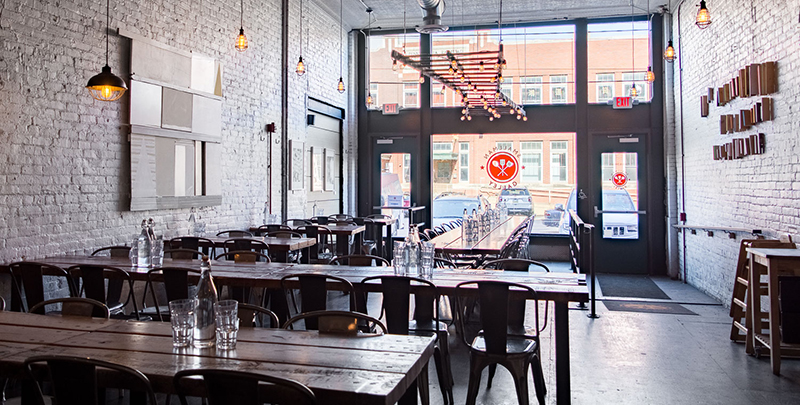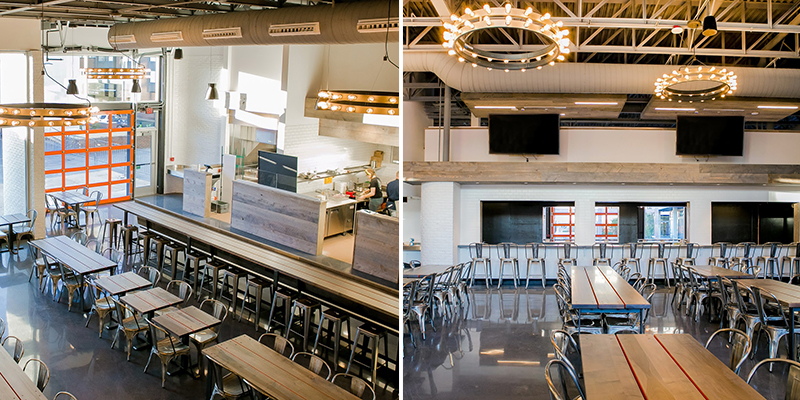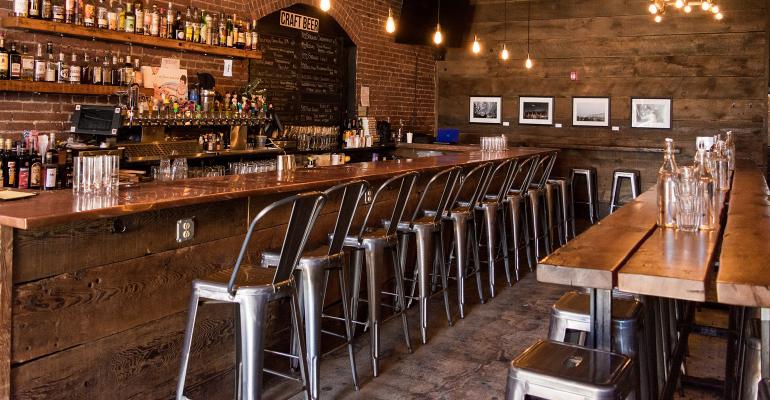Galley Group, which launched the Pittsburgh food hall and restaurant incubator Smallman Galley, is taking its model on the road.
Galley Group partners Benjamin Mantica and Tyler Benson expanded to a second Pittsburgh location called Federal Galley in December, and have plans to expand to Cleveland and Detroit.
The company’s model is to build out the kitchens itself, and then bring in experienced, entrepreneurial chefs — who end up paying only about $7,500 to $10,000 to get started.
Related story: Food hall evolution
“We looked at all the barriers to entry for a chef — whether they were opening their own brick and mortar or opening in a food hall — and we tried to do our best to eliminate all of those barriers to entry,” said Mantica. “The operators are responsible for their food and their kitchen staff, and everything else, basically, we take care of.”
 Galley Group is taking its food hall model on the road, growing to Cleveland and Detroit. (Photo: StoneSwiess)
Galley Group is taking its food hall model on the road, growing to Cleveland and Detroit. (Photo: StoneSwiess)
Like an increasing number of other food hall operators, Galley Group charges a percentage of revenues, rather than a fixed rent.
“We create this mutually beneficial relationship, because we have a vested interest in the success of each of our operators,” Mantica said.
Galley Group also operates the bar within its food halls, which helps drive much of its revenues.
“It’s a profitable strategy,” said Benson. “It’s economical both for us and for the operators. By us building out the kitchen, it allows them to keep their costs down and allows them to get some pretty hefty profit margins.
“The fact that we run the bar and we own 100 percent of the revenue from the bar program gives us a lot more flexibility in terms of how we work with the operators and set up the agreements,” Benson said.
Galley Group spent a lot of effort making sure it had a high-caliber bar that could drive strong revenues, Benson explained.
He also said the company invests to ensure that the food halls are run more like sit-down restaurants than mall food courts.
 Galley Group’s second food hall iteration is a space called Federal Galley in Pittsburgh. The company aims to run its food halls like sit-down restaurants to avoid a mall food-court feel. (Photo: Laura Petrilla)
Galley Group’s second food hall iteration is a space called Federal Galley in Pittsburgh. The company aims to run its food halls like sit-down restaurants to avoid a mall food-court feel. (Photo: Laura Petrilla)
“We have managers out on the floor, and floor staff,” said Benson. “We spend a lot of time developing a culture that centers on hospitality. That’s important to us, and it differentiates us, we think, from other food hall operations.”
Mantica said the company seeks out operators who have considerable culinary and leadership experience.
“We are finding people who are at a point in time where they have all the skills to open their own concepts, they just don’t have the resources,” he said.
In addition to interviewing potential operators to ensure they are a good fit for the environment, the company also stages a “Shark Tank”-style competition in which operators who are vying for a space pitch their concepts to a panel.
“We are looking for people who can lead a team of people in an open kitchen with customers all around,” said Mantica. “We are looking for someone who can keep it together and perform under pressure, and not everyone in the world can do that.”





